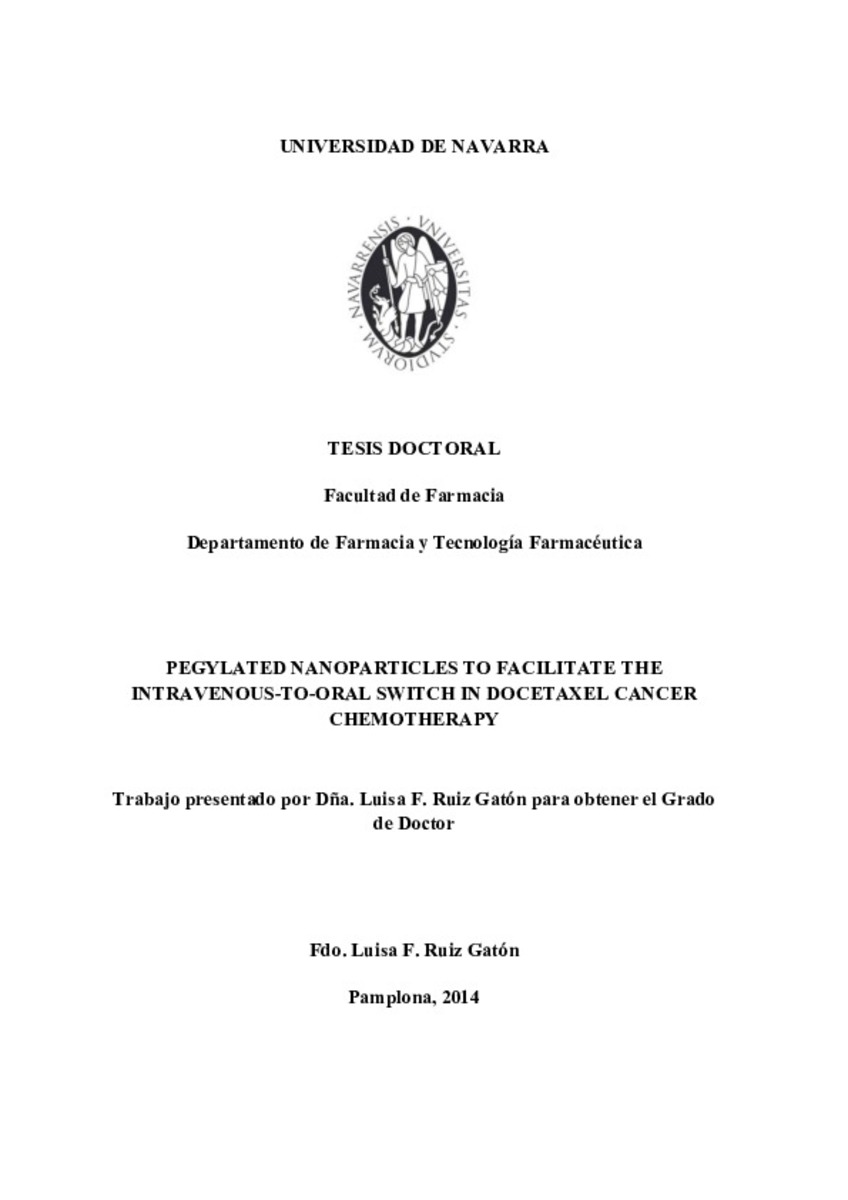Pegylated nanoparticles to facilitate the intravenous-to-oral switch in docetaxel cancer chemotherapy
Keywords:
Farmacología
Materias Investigacion::Ciencias de la Salud::Oncología
Defense Date:
27-Feb-2014
Citation:
RUIZ GATÓN, Luisa. “Pegylated nanoparticles to facilitate the intravenous-to-oral switch in docetaxel cancer chemotherapy”. Irache, J. M. y Espuelas, S. (dir.). Tesis doctoral. Universidad de Navarra, Pamplona, 2014
Statistics and impact
0 citas en

0 citas en

Items in Dadun are protected by copyright, with all rights reserved, unless otherwise indicated.










